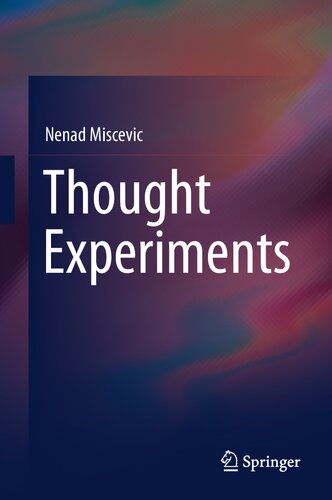

Most ebook files are in PDF format, so you can easily read them using various software such as Foxit Reader or directly on the Google Chrome browser.
Some ebook files are released by publishers in other formats such as .awz, .mobi, .epub, .fb2, etc. You may need to install specific software to read these formats on mobile/PC, such as Calibre.
Please read the tutorial at this link: https://ebookbell.com/faq
We offer FREE conversion to the popular formats you request; however, this may take some time. Therefore, right after payment, please email us, and we will try to provide the service as quickly as possible.
For some exceptional file formats or broken links (if any), please refrain from opening any disputes. Instead, email us first, and we will try to assist within a maximum of 6 hours.
EbookBell Team

5.0
48 reviewsThis book offers a readable introduction to the main aspects of thought experimenting in philosophy and science (together with related imaginative activities in mathematics and linguistics).
It presents the main options in understanding thought experiments, from empiricism to Platonism, and discusses their strengths and weaknesses. However, it also provides some original perspectives on the topic. Firstly, it provides a new definition and analysis of thought experimenting that brings it closer to laboratory experimenting. Secondly, it develops the author’s earlier theory of “mental modelling”, proposed some decades ago by him, and some other researchers in the field as the crucial procedure in thought experimenting. The mental modelling approach links work with thought experimenting to cognitive science and to research on mental simulation which is a hot topic in present-day research. Thirdly, it proposes a principled way to respond to criticism of thought experimenting by “experimental philosophers” as they have been dominating the present-day debates. The response suggests a possible ameliorative, self-help project for thought experimenting.
Finally, the book provides a way to systematize the history of important thought experiments in science and philosophy and thus connects, in an original way, the systematic investigation of experimenting to the historical work of famous thought experiments. It is of interest to scholars interested in history of ideas and philosophy of science.